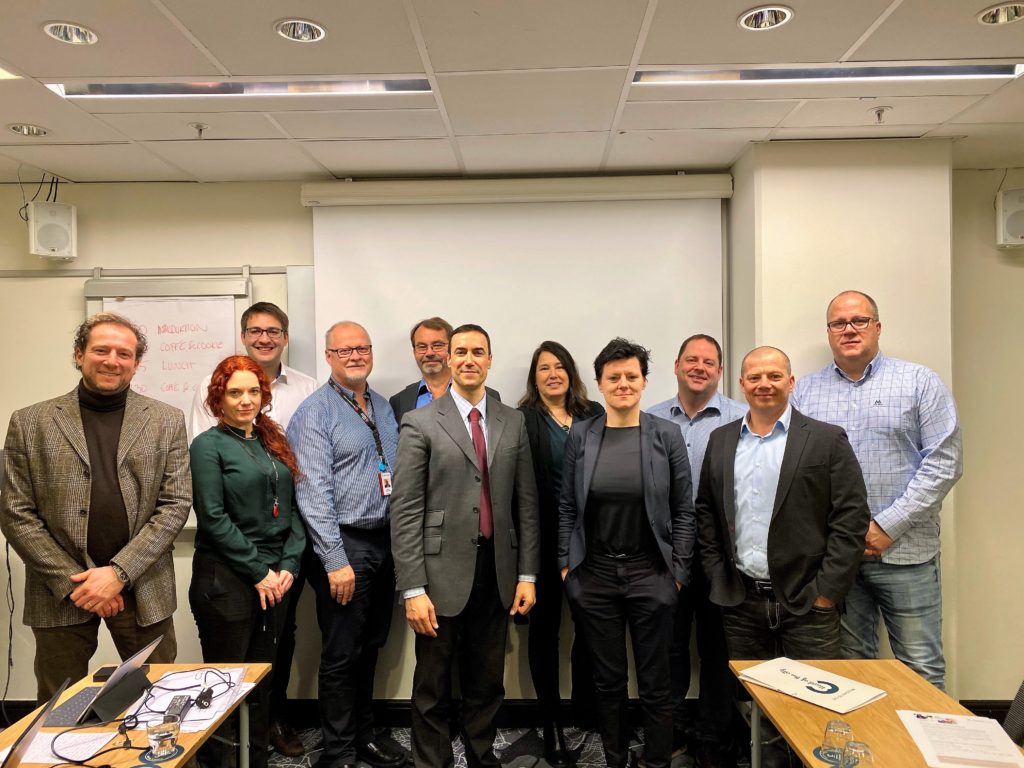

I got the opportunity to have a virtual meeting with Johan Carlgren, Accessibility Manager at ScanMed RFC, and Anne Hommik, Operations Working Group Leader at ScanMed RFC. We had a chat about ICM, disruptions, and a simulation that took place on the 29th of April 2020.
With the help of our experts, let us understand what ICM is.
International Contingency Management, or ICM as it’s shortened, are the processes described in a handbook published by Rail Net Europe (RNE). It describes how international disruptions are managed by Infrastructure Managers (IMs) and Rail Freight Corridors (RFCs) when they affect the flow of international traffic. Each of the Corridors manages an annex to this main document detailing the specifics for the respective Corridor. The management of disruptions is handled daily by the IMs on a regional and national basis. The ICM-handbook, along with the particulars for each Corridor, outlines the management of an international disruption. It is always the leading IM, i.e., the IM that has the disruption within their geographical area that declares an international disruption.
Anne and Johan explained to me why it’s so important to have a handbook and a process in place:
A process is vital, so everyone knows what to do when to do it, in what order, and how to communicate. The process gives guidance for us, in the Corridor, how to handle international disruptions. Each country within the Corridor has its specific way of managing disruptions. Without this process, it would be much harder for everyone to operate on a joint platform. The flow of goods knows no borders, and our cooperation doesn’t either. The addition of a process describing the management of an international disruption to existing processes gives another useful layer.
ScanMed RFC is one of the first Corridors to implement a 24/7 back-up service if an international disruption is declared. The affected IM has a single point of contact regardless of the day of the week, time of day, or type of disruption if there is a need to declare an international disruption. The back-up service is staffed by Trafikverket at the National Control Center.
On the 29th of April, an ICM simulation took place. To understand what the aim was and how it went, we again turn to Anne and Johan:
We tested the aspects of starting up an International Disprution, the initial call declaring an ICM, the first teleconference, and the newly updated documents. ÖBB Infra supplied us with a real-world case, though, as a simulation. All IMs within the ScanMed Corridor participated with different functions to role-play the disruption. We’ve also made some adjustments to better suit or our Corridor; instead of having separate meetings for the Incident Managers and the Communication Managers, the first meeting was joint. We feel it is better to have the first meeting together since this ensures that everyone has the same basic information. Afterward, if there is a need, separate meetings can be arranged. The Telco was completed on the Skype for Business platform. For the majority of the attendees, this worked out fine.
After a simulation, you are bound to note one or more findings that will help you to improve the process further. Anne and Johan continue to explain:
A joint communication platform for all RFCs is needed. Even though almost everyone could attend in full, this simulation proves that we need to work on this issue. RNE is in the process of overhauling the ICM-handbook. ScanMed RFC will, together with the IMs, raise the issue of one joint communication platform in the upcoming overhaul.
Some minor adjustments in our documents and checklists are also in the pipeline. One insight of the simulation was that it’s not a significant hurdle you have to overcome to declare an International Disruption. The simulation helped the participants to see that the procedure can help add value and that you don’t have to move a mountain to get the ball rolling.
I asked Anne and Johan if there was anything in particular that they think made this simulation successful?
The Operations Working Group has done a tremendous job in facilitating the simulation, and this proves the excellent cooperation within the group. Everyone in the simulation participated actively, and the evaluation was completed individually by everyone shortly after the simulation; Evaluating and finalizing the report so soon after the simulation helps in collecting fresh opinions. One surprising finding was that the information supplied by ÖBB Infra detailing the simulation was comprehensive and easy to understand; this will set a high standard for upcoming International Disruptions.
The affected IM in ScanMed RFC has the possibility of declaring an international disruption 24/7, and now, with the simulation done, the process is sure to run more smoothly.
For more information:

 Picture from ICM Workshop in Stockholm on the 30th of January 2020 in Stockholm.
Picture from ICM Workshop in Stockholm on the 30th of January 2020 in Stockholm.Anne Hommik, Operations Working Group Leader pictured in back-row, middle.

